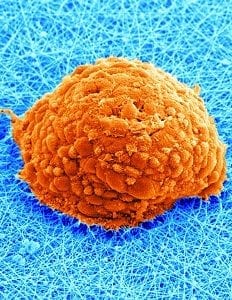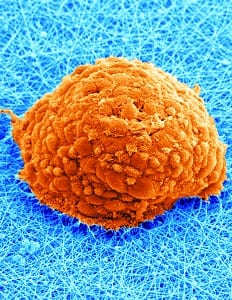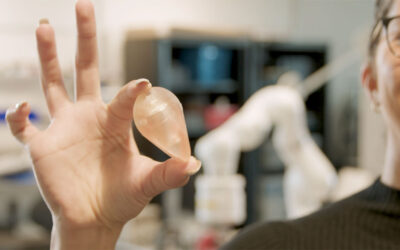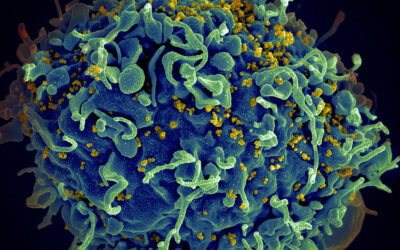 A patient-derived stem cell source, i.e., induced pluripotent stem cells (IPSCs), offers great potential for individual-tailored cell therapies and regenerative medicine. IPSCs have the unique ability to duplicate themselves to clinically-relevant cell numbers, as well as, specialize to any adult cell type, a process called differentiation. Nevertheless, the primary concern with the use of IPSCs is their potential to form tumors and undesired tissues as a result of uncontrolled differentiation when implanted in the body. To overcome this safety concern researchers have investigated multiple methods to differentiate cells to tissue-specific cell types prior to implantation. The current study uses synthetic polymer meshes with designed mechanics to direct the cellular behaviors of human IPSCs.
A patient-derived stem cell source, i.e., induced pluripotent stem cells (IPSCs), offers great potential for individual-tailored cell therapies and regenerative medicine. IPSCs have the unique ability to duplicate themselves to clinically-relevant cell numbers, as well as, specialize to any adult cell type, a process called differentiation. Nevertheless, the primary concern with the use of IPSCs is their potential to form tumors and undesired tissues as a result of uncontrolled differentiation when implanted in the body. To overcome this safety concern researchers have investigated multiple methods to differentiate cells to tissue-specific cell types prior to implantation. The current study uses synthetic polymer meshes with designed mechanics to direct the cellular behaviors of human IPSCs.
IPSCs, which typically grow in the form of tight-knit aggregates, develop distinct colony geometries depending on the mechanics of the polymer meshes. Such a differential development of colony morphology critically affects the subsequent differentiation of the cells. These results demonstrate a facile, practical method to enhance the cell type-specific differentiation of IPSCs by culturing cells on the polymer meshes with appropriate mechanical properties. Therefore, the optimization of the synthetic polymer meshes for various specialized cell types will lead to significant advances in the clinical translation of IPSCs.

















